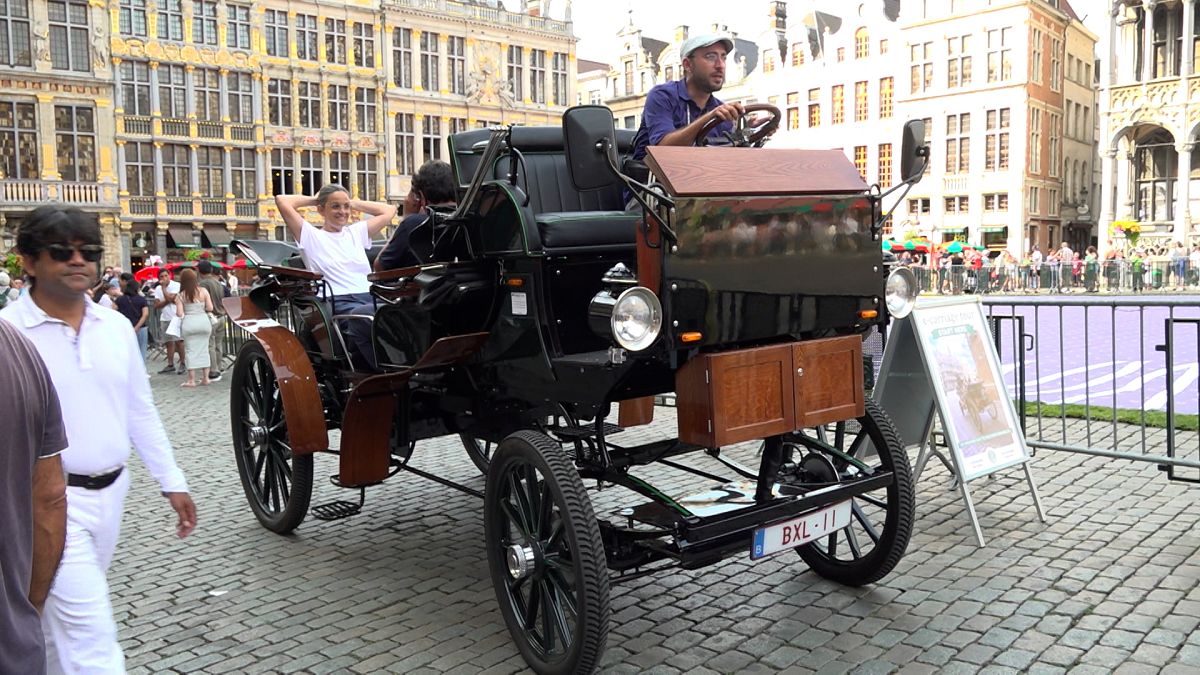The central square of Brussels has recently seen a major change, with tourists now opting for electric carriages instead of traditional horse-drawn ones. Thibault Danthine, the city carriage operator, spearheaded this transition after winning funding from the city in 2022. Concerns about the welfare of the animals used in horse-drawn carriages played a significant role in this decision, as issues like finding drivers, ethical dilemmas, and changing attitudes towards animal rights prompted Danthine to make the switch. Last year, a horse tragically died in Seville while pulling a carriage during a heat wave, further emphasizing the need for a more humane alternative.
Danthine has already sold his six horses and invested in two electric carriages manufactured in Poland, with plans for a third to be delivered soon. These vehicles have a range of 120 kilometers and need to be recharged every two days. The brand of these electric carriages is Anderson, named after Robert Anderson, the inventor of the first crude electric carriage in Scotland in the 19th century. Danthine is confident that these electric carriages will continue to attract tourists looking for unique experiences with family or friends. The innovative nature of this project has garnered attention from other cities, with several expressing interest in making a similar transition to electric vehicles.
The response from city residents to the switch from horse-drawn to electric carriages has been largely positive. Many residents appreciate the reduction in noise and smell that came with traditional horse-drawn carriages, as well as the improved welfare for the animals who no longer have to spend long hours in the bustling city environment. One student, named Sari, expressed her approval of the change, highlighting the benefits for both the city and the animals. The move towards electric carriages in Brussels represents a step towards a more sustainable and animal-friendly tourism industry, setting an example for other cities to follow.
Brussels’ transition to electric carriages marks a significant milestone in the tourism industry, setting a precedent for other cities to consider similar changes. Thibault Danthine’s commitment to prioritizing animal welfare and embracing sustainable technologies has not gone unnoticed, with other cities already expressing interest in adopting his innovative approach. The success of this project demonstrates the growing shift towards more ethical and environmentally conscious practices within the tourism sector, reflecting changing societal values and attitudes towards the treatment of animals in commercial activities.
The decision to transition from horse-drawn to electric carriages in Brussels was motivated by a combination of logistical challenges, ethical considerations, and changing societal norms. The tragic incident in Seville, where a horse died while pulling a carriage during extreme heat, served as a stark reminder of the risks involved in using animals for commercial purposes. Thibault Danthine’s decision to sell his horses and invest in electric carriages reflects a broader shift towards more sustainable and animal-friendly practices in the tourism industry, paving the way for a more ethical and responsible approach to sightseeing and city tours.
The introduction of electric carriages in Brussels not only reflects a growing awareness of animal welfare and sustainability but also signals a broader shift towards more innovative and environmentally friendly technologies in the tourism sector. Thibault Danthine’s project has not only garnered positive feedback from city residents but has also attracted interest from other cities looking to emulate Brussels’ success. By embracing electric vehicles as a more humane and environmentally conscious alternative to horse-drawn carriages, Brussels is leading the way in promoting a more ethical and sustainable approach to tourism that prioritizes both the well-being of animals and the conservation of the environment.











